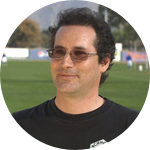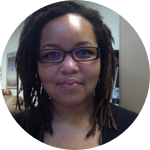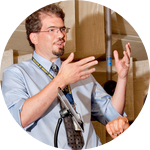Project Results
While remote data collection is not a new concept, the quality and psychometric properties of data collected remotely often remain unclear. Most remote data collection is done via online survey tools or web-conferencing applications (i.e., Skype or Zoom) and largely involves questionnaires, interviews, or other self-report data. Little research has been done on the collection of cognitive assessments and interventions via web-conferencing that requires multiple sessions with or without the assistance of an experimenter. The present paper discusses limitations and challenges of studies administered remotely, and outlines methods used to overcome such challenges while effectively collecting cognitive performance data remotely via Zoom. We further discuss relative recruitment, retention rates, compliance, and performance findings between in-lab and remotely administered cognitive assessment and intervention studies, as well as limitations to remote data collection. We found that while it was necessary to recruit more participants in remote studies to reach enrollment goals, compliance and performance were largely comparable between in-lab and remotely administered studies, illustrating the opportunities of conducting this type of experimental research remotely with adequate fidelity.
About This Project
Hearing loss is one of the top disabilities facing veterans, with over $1 Billion in disability payments per year. Auditory dysfunction (AD) can lead to isolation and depression due to difficulty in understanding speech. Sadly, veterans are left to cope with AD, which has no accepted treatments. To better serve our veterans, we are developing a novel approach to treat AD, by training the auditory cortex to better process complex sounds.
Ask the Scientists
Join The DiscussionWhat is the context of this research?
The UCR Brain Game Center for mental fitness and wellbeing was formed to research, test, and disseminate evidence-based, scientifically optimized brain fitness games that transfer benefits to real-life activities. Our first success is a game, created through innovations in psychology, neuroscience and computer science, that improves brain processing of visual information with translation to reading skills and even to on-field baseball performance and helps those with low vision.
Our proposed training game for hearing uses the same principles, but targets neuroplasticity (learning) in the auditory system to improve processing of complex sounds. This learning process is based on neurophysiological studies of auditory processing, and is related to speech processing in the auditory cortex.
What is the significance of this project?
An auditory training program that improves central auditory processing and runs on standard computers and mobile devices can have profound societal benefits.
1). Increasing numbers of veterans returning from service after suffering blast damage are found to have AD. There is currently no accepted treatment for AD. This training program will provide relief for veterans with AD
2). Research of AD is in its infancy and our study will lead both to better characterization of the underlying deficits and strategies to rehabilitate those suffering from AD.
3). This research can help many other hearing impaired populations, including musicians, mechanics and machinists; reduce the effects of age-related hearing loss
; and aid individuals with hearing aids and cochlear implants.
What are the goals of the project?
Stage 1 - Create a prototype auditory training game using the cross platform game engine Unity (enabling broad dissemination once the prototype is validated).
Stage 2 - Pilot study in college students with normal hearing to refine procedures, including performance monitoring and adaptability to individual capabilities. Game will be refined based upon initial tests to ensure that the game version tested on veterans is robust, usable, and effective.
Stage 3 - Recruit veterans with AD, assess their hearing with simple (tones) and complex (frequency modulations and speech) sounds in quiet and noisy environments. Then train veterans' hearing with the auditory training game, and reassess to evaluate impacts of the intervention.
Stage 4 - Refine prototype and release to public
Budget
Our team has already begun work on Stage 1 using existing research funds at UCR. However, we will quickly exhaust current funds given our rapid progress. The budget proposed here is a start-up budget for each stage. We expect that the final cost of each stage will be much higher. For example, we will likely need higher numbers of research participants and research assistants before progressing to Stage 3, and each round of program adjustments in Stage 2 will need to be tested in the lab.
Stage 1, build game prototype (cost $10,000) Creating this prototype is fundamental to the project. Graduate and undergraduate students in computer science and neuroscience are working together to develop both hearing evaluations and the brain training game.
- Computer costs ($3500)
- Software/licensing fees ($500)
- Graphics ($500)
- Sound production costs ($500)
- Pay programmers for development ($5000)
Stage 2, test and refine game (cost $20,000) - Funding is required to run pilot research studies and also to pay programmers to improve the game based upon findings of preliminary studies. The pilot study will be run on undergraduate students with normal hearing at UCR.
- Pay research assistants ($5000)
- Payment and supplies for research participants (20 x $10 per hour X 20 hours = $4000)
- Pay programmers ($5000)
- iPads for training studies (4 X $500 = $2000)
- Computers and sound equipment for hearing tests ($4000)
- iPad for home use (X 20 = $10,000)
- Advertise study to veterans ($1000)
- Pay research assistants ($20,000)
- Pay research participants ($4000)
- Pay programmers ($5000)
Stage 4, refine game to the point that it can be publicly released (cost $30,000) This last goal will allow veterans in need to be able to acquire the treatment.
- Game assets ($2000)
- Industrial game server for 1 Yr ($1000)
- Pay programmers ($25,000)
- Marketing ($2000)
Meet the Team
Team Bio
Aaron Seitz, Ph.D. is a Professor of Psychology at UC Riverside and a world world-leading expert in brain plasticity and neuroscience with a successful track record creating advance brain fitness programs that transfer to real world activities.
Frederick J. Gallun, Ph.D. is a researcher at the National Center for Rehabilitative Auditory Research, and Associate Professor in Otolaryngology and the Neuroscience Graduate Program at Oregon Health and Science University. His laboratory focuses on the impacts of aging and brain injury on hearing.
Victor Zordan, Ph.D is an Associate Professor of Computer Science and world-leading expert computer graphics and animation with specialties in video game design and intelligent systems.
Dominique Simmons is a Cognitive Psychology graduate student at UCR studying audiovisual speech perception. Her research interests include music cognition and psycholinguistics.
Alison Smith is a Neuroscience graduate student at UCR studying hearing loss in combat vet
Dominique Simmons
Dominique is a second-year graduate student at UC Riverside
studying variability in talker perception in the auditory and visual modalities. She earned a B.A. in Psychology with honors from Whittier College in Los Angeles, CA. Her previous research work includes speech production, infant cognition, and statistical learning in speech. She is trained in various behavioral methods, eye-tracking, and EEG. Her research interests include audiovisual speech processing, music perception, psycholinguistics. In her free time she enjoys hiking, dancing Tango, and attending cultural festivals.
Alison Smith
I'm a graduate student researcher with the University of California, Riverside in the Neuroscience PhD program. Currently, I'm working with Dr. Aaron Seitz, who studies perceptual learning, and has done amazing work in vision training through the Brain Games Center at UCR. I'm very excited to be a part of the Brain Games Center, and I hope that my research contributes to further understanding of how the brain functions, and how we can improve brain function. I have a special interest in veterans, since I, myself, am a disabled veteran. Currently, I am working to help veterans with Traumatic Brain Injury (TBI). Much more research is needed on how TBI affects the brain and how we can help patients with TBI recover function. Our current project is just the tip of the iceberg.
Additional Information
This is our team at our first official fundraising event!
Project Backers
- 30Backers
- 111%Funded
- $11,110Total Donations
- $185.17Average Donation

















